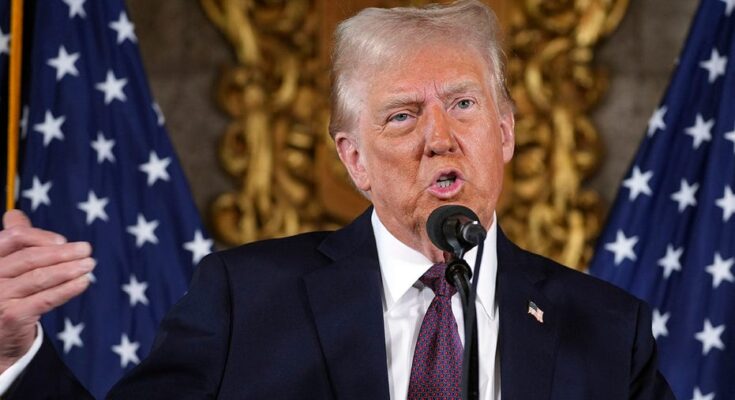The CEO of the Panama Canal has denied President-elect Trump’s allegation that the waterway built by the U.S. over a century ago is now under the control of China.
“The accusations that China is running the Canal are unfounded,” Panama Canal Authority leader Ricaurte Vásquez Morales told The Wall Street Journal on Wednesday. “China has no involvement whatsoever in our operations.”
“Rules are rules and there are no exceptions,” Vásquez Morales reportedly added. “We cannot discriminate for the Chinese, or the Americans, or anyone else. This will violate the neutrality treaty, international law, and it will lead to chaos.”
In the 1970s, then-President Jimmy Carter negotiated what became known as the Torrijos-Carter Treaties, which agreed the U.S. could use military force to defend the waterway against any threat to its “neutrality.” That aspect was considered crucial for the U.S. at the time amid the threat of Soviet-aligned states. Carter also agreed that the Panama Canal itself would be turned over to Panama on Dec. 31, 1999.
TRUMP: CARTER WAS A ‘VERY FINE’ PERSON BUT PANAMA CANAL MOVES WERE ‘A BIG MISTAKE’
On Tuesday, a reporter asked Trump at Mar-a-Lago in Palm Beach, Florida, if he would assure the world he would not use “military or economic coercion” to gain control of the Panama Canal, as well as Greenland.
“No, I can’t assure you on either of those two. But, I can say this. We need them for economic security. The Panama Canal was built for our military,” Trump said. “Look, the Panama Canal is vital to our country. It’s being operated by China. China. And we gave the Panama Canal to Panama. We didn’t give it to China. And they’ve abused it. They’ve abused that gift. It should have never been made.”
While former President Carter was lying in state at the Capitol, Trump said he liked the man but disagreed with the deal he struck regarding the canal.
“Giving the Panama Canal is why Jimmy Carter lost the election, in my opinion, more so maybe than the hostages. The hostages were a big deal. But if you remember, nobody wants to talk about the Panama Canal because, you know, it’s inappropriate, I guess. But, because it’s a bad part of the Carter legacy,” Trump added later. “But, he was a good man. Look, he was a good man. I know him a little bit, and he was a very fine person. But that was a big mistake.”
This is not the first time the Panamanian government has denied China’s influence.
Last month, Trump posted on TRUTH Social, “Merry Christmas to all, including to the wonderful soldiers of China, who are lovingly, but illegally, operating the Panama Canal.”
In response, Panamanian President José Raúl Mulino dismissed the claim as “nonsense,” saying at a press conference, “There is not a single Chinese soldier in the canal.”
“The canal is Panamanian and belongs to Panamanians. There’s no possibility of opening any kind of conversation around this reality,” he added, according to the BBC.
TRUMP FLOATS IDEA OF US RECLAIMING PANAMA CANAL: ‘FOOLISHLY GAVE IT AWAY’
Trump’s concerns echo those from the U.S. Department of Defense over growing Chinese investments in shipping ports around the world.
Testifying before the House Armed Services Committee last March, Gen. Laura J. Richardson, the head of U.S. Southern Command, told lawmakers that the People’s Republic of China (PRC) “messages its investments as peaceful, but in fact, many serve as points of future multi-domain access for the PLA and strategic naval chokepoints.”
“These investments include critical infrastructure such as deep-water ports, cyber facilities, and space facilities,” Richardson warned. “In Panama, PRC-controlled State-Owned Enterprises (SOEs) continue to bid on projects related to the Panama Canal — a global strategic chokepoint.”
Five percent of world commerce passes through the Panama Canal, Richardson said.
CLICK HERE TO GET THE FOX NEWS APP
Two seaports on either side of the Panama Canal have been run for decades by the Hong-Kong-based company Hutchison Ports PPC, The New York Times reported, noting how the Chinese government has increasingly implemented its national security laws on the island of Hong Kong that can force companies to comply with intelligence-gathering and military operations.
Roughly 40% of U.S. container traffic runs through the Panama Canal, according to the newspaper.
